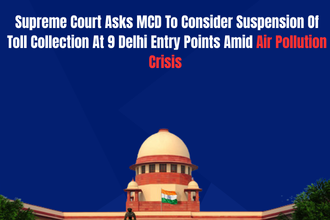In a significant legal development in India’s medical innovation landscape, the Bombay High Court has issued notice to the Central Drugs Standard Control Organisation (CDSCO) and the Central government in response to a petition filed by Datar Cancer Genetics, a Nashik-based biotechnology firm. The company is seeking permission to begin Phase I human trials for its indigenous cancer immunotherapy vaccine, Per-C-Vax, designed to treat patients recently diagnosed with solid organ cancers.
Background of the Case
The case arises out of the CDSCO’s rejection of Datar Genetics’ clinical trial application on April 22, 2025. The rejection was based on alleged incompleteness of the application and the company’s failure to submit pre-clinical animal data, a standard requirement under India’s New Drugs and Clinical Trials (NDCT) Rules, 2019.
Datar Cancer Genetics, represented by S. Mahomedbhai & Co Advocates & Solicitors, has challenged this order before the Bombay High Court, calling it “arbitrary,” “unscientific,” and a “fraud on the statute.”
A Division Bench comprising Chief Justice Alok Aradhe and Justice MS Karnik issued notice on May 7, 2025, directing the Union of India and the CDSCO to respond to the plea.
What is Per-C-Vax?
Per-C-Vax is a therapeutic cancer vaccine developed from patient-derived tumor cells or tumor cell lines. Unlike conventional vaccines that aim to prevent disease, Per-C-Vax is intended to stimulate the immune system to target and destroy cancer cells in patients recently diagnosed with solid organ tumors.
Datar claims that due to the highly personalized and biological nature of the therapy, animal testing is neither feasible nor scientifically valid. The vaccine relies on tumor lysates—a method previously validated through global research but still under regulatory scrutiny in India.
Timeline of Regulatory Submissions
- August 2, 2023: Datar submitted its clinical trial application under Rule 23 of the NDCT Rules, 2019, which mandates a response within 30 working days.
- September 15, 2023: Statutory deadline for CDSCO response expired without a deficiency letter. Datar claims the application was thus “deemed approved.”
- September 21, 2023: CDSCO raised further queries.
- November 28, 2023: Datar submitted a detailed response, including international scientific references and in vitro data.
- April 22, 2025: CDSCO rejected the application, citing incompleteness and inapplicability of Form CT-4A, which Datar had used to assert deemed approval status.
Key Legal and Scientific Arguments
1. Deemed Approval Under NDCT Rules
Under Rule 23 of the NDCT Rules, if the drug regulator does not respond within 30 working days of a complete application, the trial is considered automatically approved. Datar argues that since no deficiency letter was issued within the stipulated time, its application should have been “deemed approved”, and the subsequent queries and rejection are legally invalid.
2. Scientific Impossibility of Animal Trials
Datar emphasizes that Per-C-Vax’s biological design does not lend itself to conventional animal testing. It cites a 2011 guidance from the US FDA, which exempts therapeutic cancer vaccines from pre-clinical animal studies if they fall under previously validated classes. Datar argues its vaccine falls under this category and has submitted in vitro data and reference trials to support this.
3. Use of Form CT-4A
The petition disputes the CDSCO’s claim that Form CT-4A, used to claim deemed approval, was “not applicable.” Datar argues that under the 2019 rules, this form is mandatory and valid when no objections are raised within the statutory timeframe.
4. Ad-hoc Toxicity Study at IISER Pune
In an effort to address safety concerns, Datar conducted an ad-hoc toxicity study at IISER Pune. However, CDSCO dismissed the results on the ground that the lab lacked Good Laboratory Practice (GLP) accreditation. The company maintains that the rejection on procedural grounds ignores the scientific credibility of the study.
Allegations Against CDSCO
Datar Genetics has called the CDSCO’s actions “mala fide”, alleging that the drug regulator deliberately delayed the decision and invoked procedural technicalities to deny the application. The petition describes the CDSCO’s conduct as a “colourable exercise of power” aimed at bypassing legal safeguards meant to ensure time-bound decision-making in drug approvals.
Legal Relief Sought
Datar is seeking the following reliefs from the Bombay High Court:
- Quashing of the CDSCO order dated April 22, 2025.
- Direction to CDSCO and the Central Government to allow Phase I clinical trials for Per-C-Vax without requiring animal testing.
- Recognition of deemed approval status under Rule 23 of the NDCT Rules.
Implications for Indian Medical Innovation
This case holds substantial implications for medical innovation, regulatory transparency, and judicial oversight in India. At a time when India is promoting “Make in India” and self-reliance in pharmaceuticals and biotechnology, the judiciary’s stance on such regulatory disputes will shape the future of clinical research and cancer care in the country.
If the Bombay High Court rules in favor of Datar:
- It could set a precedent allowing greater flexibility in trial approvals for personalized medicines.
- It may lead to a reform in CDSCO procedures, ensuring stricter adherence to statutory timelines.
If the Court sides with CDSCO:
- The decision could reaffirm the primacy of pre-clinical data, reinforcing the stringency of drug approvals.
- It may also deter smaller research firms from innovating in complex therapeutic areas due to regulatory burdens.
Conclusion
The Bombay High Court’s notice to the Central Government and CDSCO marks a crucial turning point in the legal journey of Per-C-Vax, a potentially revolutionary Indian cancer vaccine. As the matter unfolds, it will test the balance between scientific innovation and regulatory caution and could redefine how India treats cutting-edge therapeutic research.
Whether the Court upholds scientific reasoning over procedural rigidity, or backs stringent regulatory compliance over experimental treatments, this case is likely to set an important legal and biomedical precedent.


